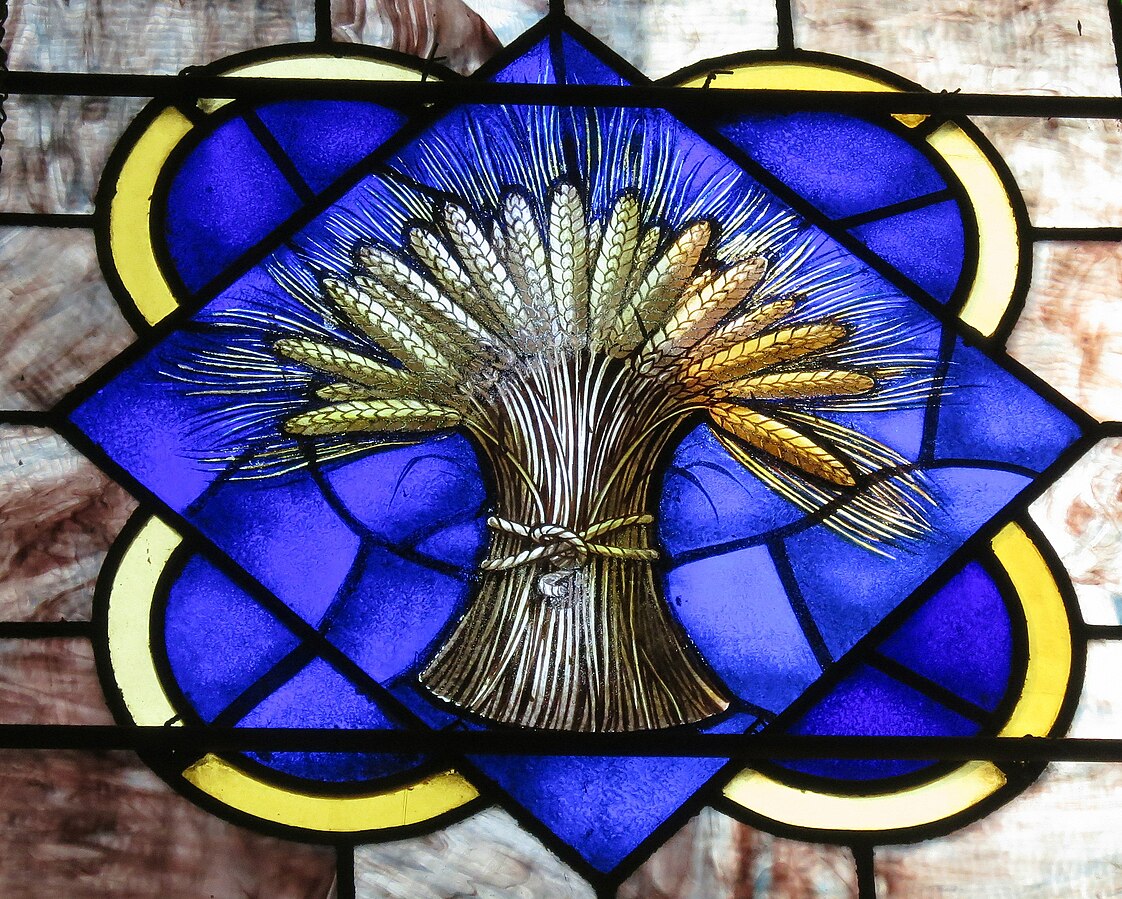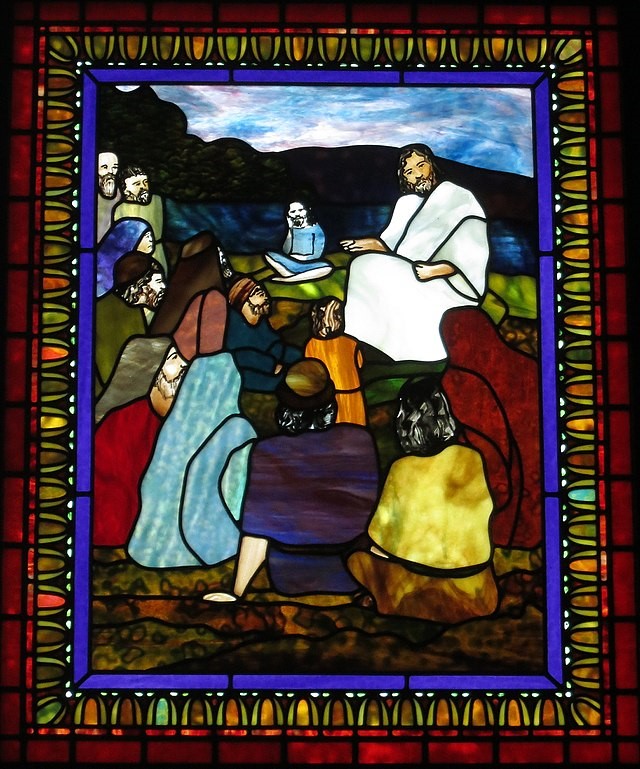Franciscan Friar Fr. Paul Gallagher reflects on the Gospel text for the Fifth Sunday of Lent. Who are the people who have led you to your relationship with Jesus?
The content is edited by Franciscan Sister of Christian Charity Sister Anne Marie Lom and Joe Thiel. The excerpts from the Sunday readings are prepared by Joe Thiel. To read or download the complete pdf with excerpts for your prayer, please click here Franciscan Gospel Reflection March 17 2024. Excerpts are from the Lectionary for Mass for Use in the Dioceses of the United States of America, second typical edition © 2001, 1998, 1997, 1986, 1970 Confraternity of Christian Doctrine, Inc., Washington, DC. Used with permission. All rights reserved. No portion of this text may be reproduced by any means without permission in writing from the copyright owner. Photos: Nheyob, CC BY-SA 4.0 <https://creativecommons.org/licenses/by-sa/4.0>, via Wikimedia Commons, Nheyob, CC BY-SA 4.0 <https://creativecommons.org/licenses/by-sa/4.0>, via Wikimedia Commons.
John 12:20-33
Now there were some Greeks among those who had come up to worship at the feast. They came to Philip, who was from Bethsaida in Galilee, and asked him, “Sir, we would like to see Jesus.” Philip went and told Andrew; then Andrew and Philip went and told Jesus.
Jesus answered them, “The hour has come for the Son of Man to be glorified. Amen, amen, I say to you, unless a grain of wheat falls to the ground and dies, it remains just a grain of wheat; but if it dies, it produces much fruit. Whoever loves his life loses it, and whoever hates his life in this world will preserve it for eternal life. Whoever serves me must follow me, and where I am, there also will my servant be. The Father will honor whoever serves me.
“I am troubled now. Yet what should I say? ‘Father, save me from this hour’? But it was for this purpose that I came to this hour. Father, glorify your name.” Then a voice came from heaven, “I have glorified it and will glorify it again.” The crowd there heard it and said it was thunder; but others said, “An angel has spoken to him.” Jesus answered and said, “This voice did not come for my sake but for yours. Now is the time of judgment on this world; now the ruler of this world will be driven out. And when I am lifted up from the earth, I will draw everyone to myself.” He said this indicating the kind of death he would die.
Background:
Most of chapter 11 of John’s Gospel recounts Jesus’ raising Lazarus from the dead (John 11:1-45). For some, Lazarus’ return to life led them to believe in Jesus, but others went off to inform the Pharisees. The chief priests and Pharisees convened a meeting of the full Sanhedrin. Worried about Rome’s reaction to Jesus’ growing popularity, they decided to kill him. Jesus no longer walked in public, and he left the region.
The people who had gathered for the Passover were looking for Jesus and wondering if he would come for the feast. The chief priests and the Pharisees had spread the word that they wanted to arrest him. Six days before the Passover, Jesus traveled to Bethany and the house of Lazarus. While at dinner, Mary anointed Jesus’ feet with expensive oil. The crowd learned where Jesus was and came out to see him and Lazarus. The plot to kill Jesus was expanded to include Lazarus. Jesus entered the city of Jerusalem with crowds of people greeting him, waving palm branches and crying out “Hosanna!” At this sight the Pharisees said, “Look, the whole world has gone after him” (John 12:19b). This briefly summarizes the text that immediately precedes this week’s Gospel (John 11:45-12:19).
Philip and Andrew are Greek names. It is possible that the Greeks who had come to Jerusalem knew Philip, or at least thought they would have a better chance of meeting Jesus by approaching a fellow Greek. The text does not say whether or not they were Jews, or why they were in Jerusalem. The assumption that they were there to celebrate the Passover is not confirmed in the text. They may also have been there to sell merchandise to the crowds, or as escorts to Jews who had come for the feast. Their request to meet Jesus gives credence to the Pharisees’ statement that “the whole world has gone after him.”
With the arrival of the Greeks, Jesus says that his hour has arrived. It is both the hour that he dreads and the hour of his glory. Jesus uses the image of a grain of wheat to illustrate his point. It is only by the seed’s destruction that it can become a plant that can then provide nourishment. The reality that the seed must surrender its life as a seed in order to become a plant is also Jesus’ reality, as well as the reality of those who desire to be his followers.
The use of the words “love” and “hate” emphasizes the contrast. A choice is involved here, a decision has to be made. Jesus’ prayer to the Father indicates a sense of the real struggle within himself. With Jesus’ decision to be faithful, the events that will lead to his death are set in motion. God’s affirmation, the voice from heaven, is heard by those present, but not understood. The hour of judgment has come. The rulers of the world, those who do not accept his teaching, will be defeated. In the text, the Greeks have come to Jerusalem for the Passover and to find their way to Jesus. At the end of the text, Jesus says that when he is raised up, he will draw everyone to himself.
As we gather to hear this Gospel, we are present with the elect from all over the world who will be baptized at the Easter Vigil. They are in the process of making their final decision to become followers of Christ and members of the Church–non-Jews who have been drawn to Jesus.
Reflection Questions:
1. Who are the people who have led you to your relationship with Jesus?
2. Has there been a time when you were struggling with your faith, either in Jesus as the Christ, or to continue your association with the Church? What was that period like? What do you remember about that time in your life?
3. Have you ever been part of the faith journey of another? How did that experience affect your relationship with Jesus?
4. How have the events of this year and/or this Lent influenced your awareness of your need for God?
5. How do you hear Jesus’ statement “I am troubled now. Yet what should I say? ‘Father, save me from this hour?’”
6. Do you think that Jesus was really troubled by the fact that the likelihood of his crucifixion and death was becoming more apparent?
7. Can you take some time to talk with God about your feelings as Jesus struggles to be faithful to the Father as his death becomes more apparent? You may instead rather talk with God about your own struggles to be faithful.




